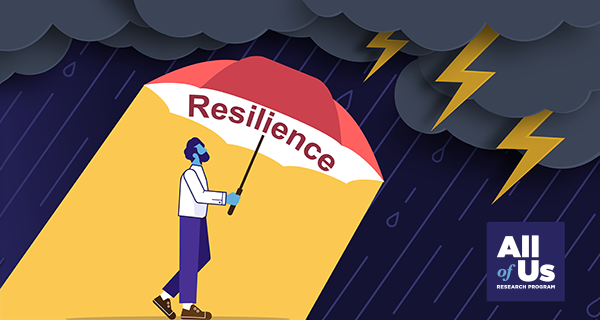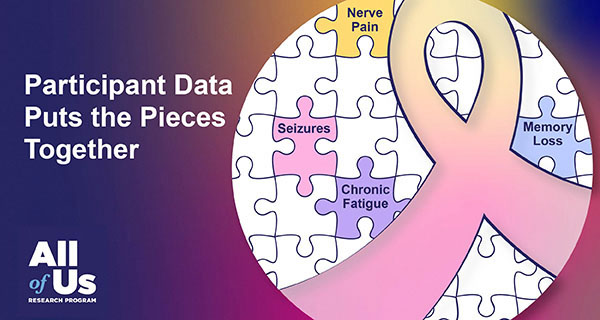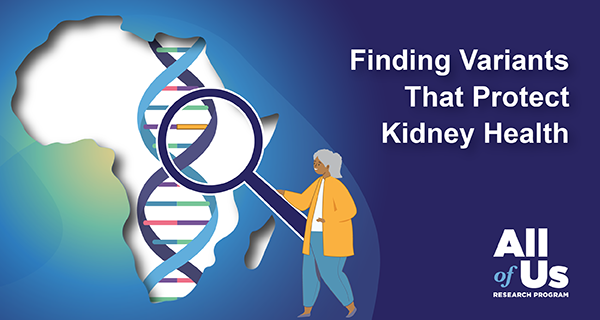All of Us is shaping how we understand health and disease. Research Highlights showcase the recent research powered by All of Us data and tools.
Leer investigaciones destacadas en español

All of Us Data Shows the Effect of Resilience in Difficult Times
A study of All of Us survey data confirmed that feelings of depression increased during the COVID-19 pandemic, particularly among participants who experienced discrimination. Having a high level of resilience lessened the effect of discrimination on mental health in some racial and ethnic groups.

Learning About the Health of Young Cancer Survivors With All of Us
The long-term health of teens and young adults who have had cancer has not been well studied. A look at All of Us data showed that young cancer survivors were more likely to have certain brain- and nerve-related conditions than participants who never had cancer. This age group may need unique treatment and management plans.

Finding Genetic Clues to Kidney Health in All of Us
People of African ancestry can be more likely to develop kidney disease if they have certain genetic variants. Researchers studied genetic data from three different databases, including the All of Us Research Program. They found another variant that protected people with the high-risk variants from developing kidney disease. This finding could help find new treatments for kidney disease.
Past Research Highlights
Counting the Steps to Lower Diabetes Risk With All of Us
All of Us Data Highlights Risky Drinking Among Cancer Survivors
All of Us Data Shows the Power of Social Support to Prevent Depression
Learning More About LGBTQIA+ Health Thanks to All of Us
Using All of Us Data to Learn About Glaucoma Awareness
Study Finds Differences in Quality of Life for Lesbian, Gay, and Bisexual Cancer Survivors
All of Us Data Teaches Us About Who Gets Vaccinated
Discovering More Genetic Variants Thanks to All of Us Data
What All of Us Data Says About Blindness and Mental Health During COVID-19
Learning More About Dementia Risk Through All of Us
All of Us Data Clarifies What We Know About Hispanic Heart Health
Steps to Better Health With All of Us
Study Links Birthplace and Cancer Risk Among Hispanic All of Us Participants
All of Us Data Helps Better Predict Hospital Readmission for Patients With Sepsis
All of Us Meets FDA Standards to Deliver DNA Research Results to Participants
 U.S. Department of Health & Human Services
U.S. Department of Health & Human Services
